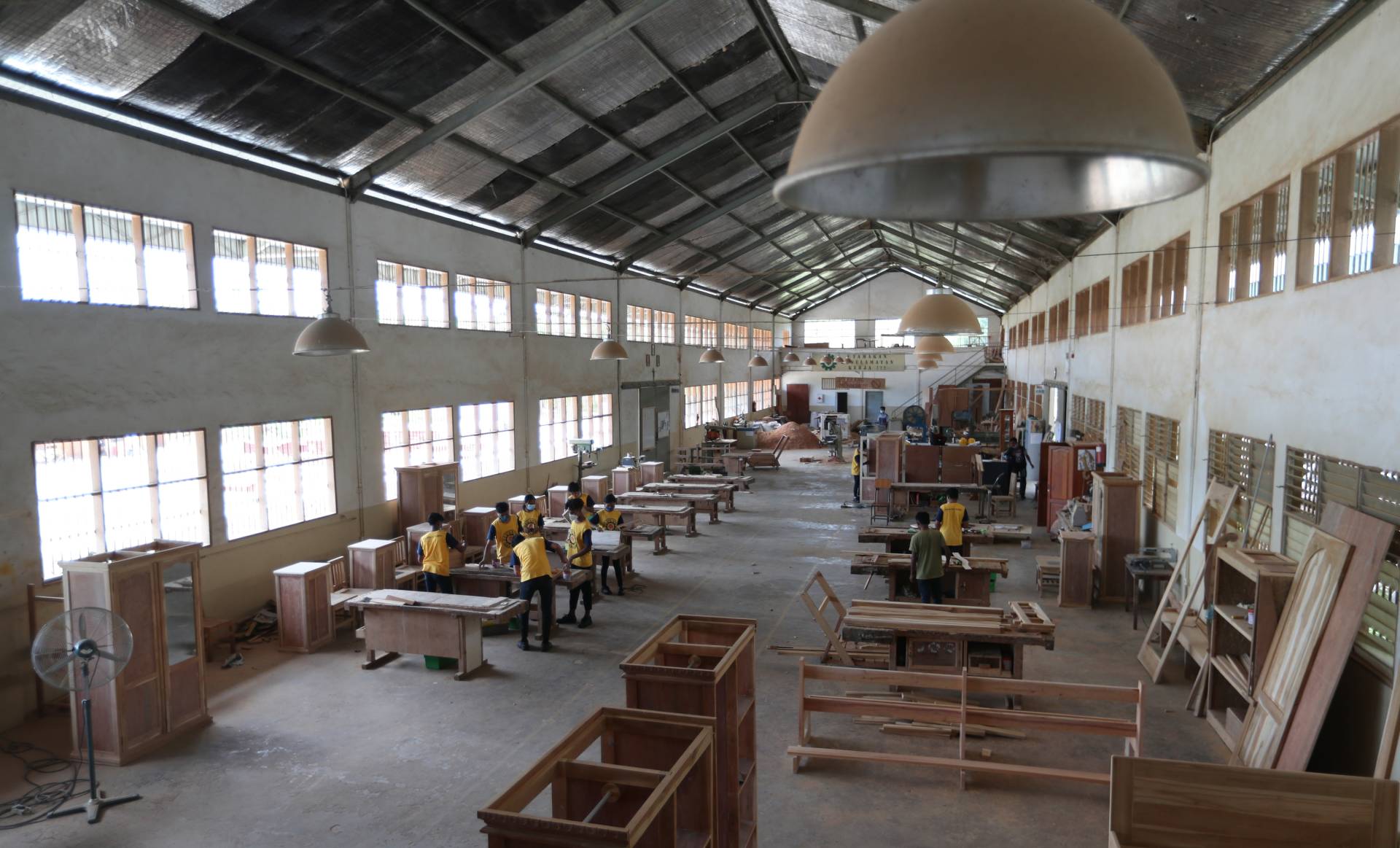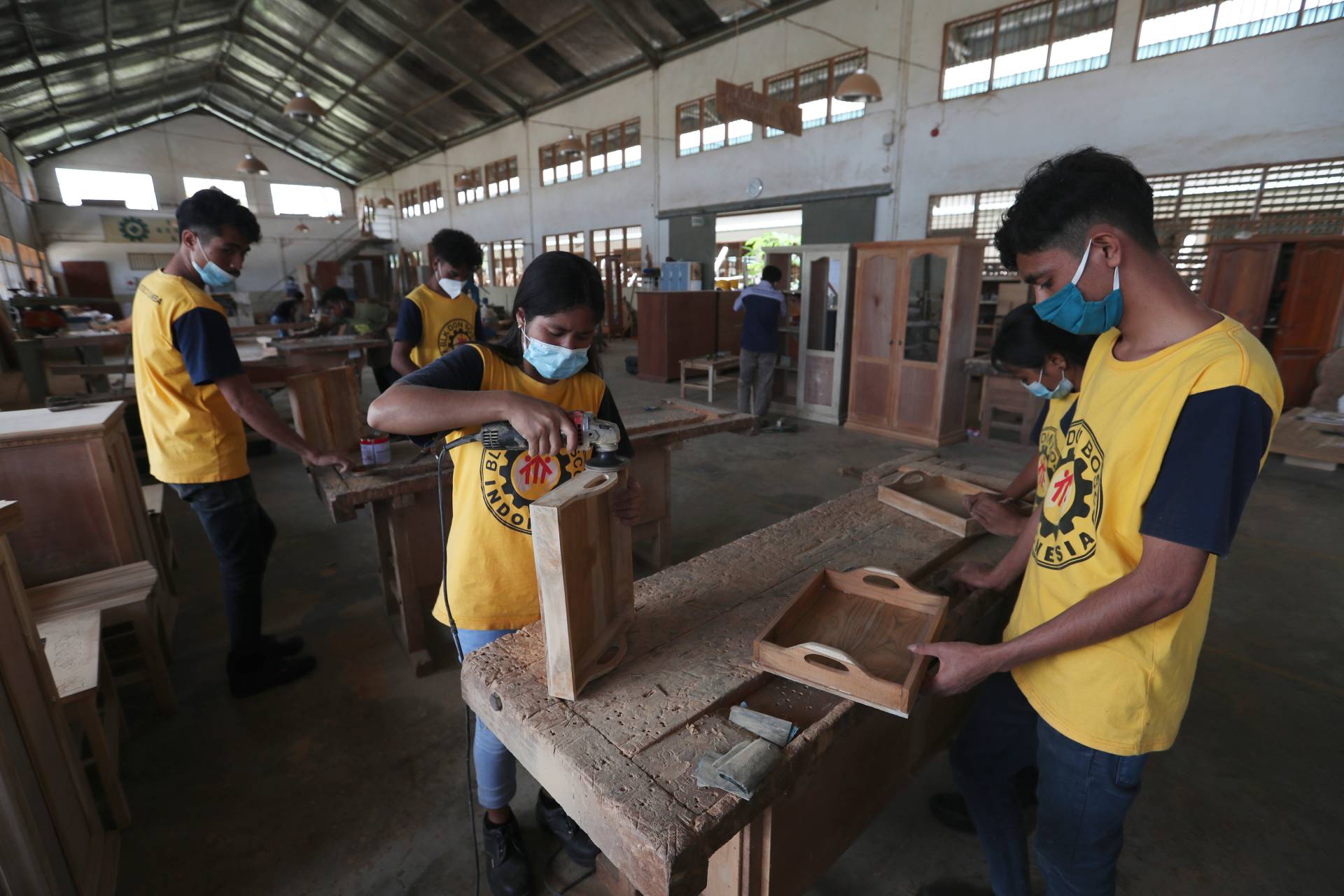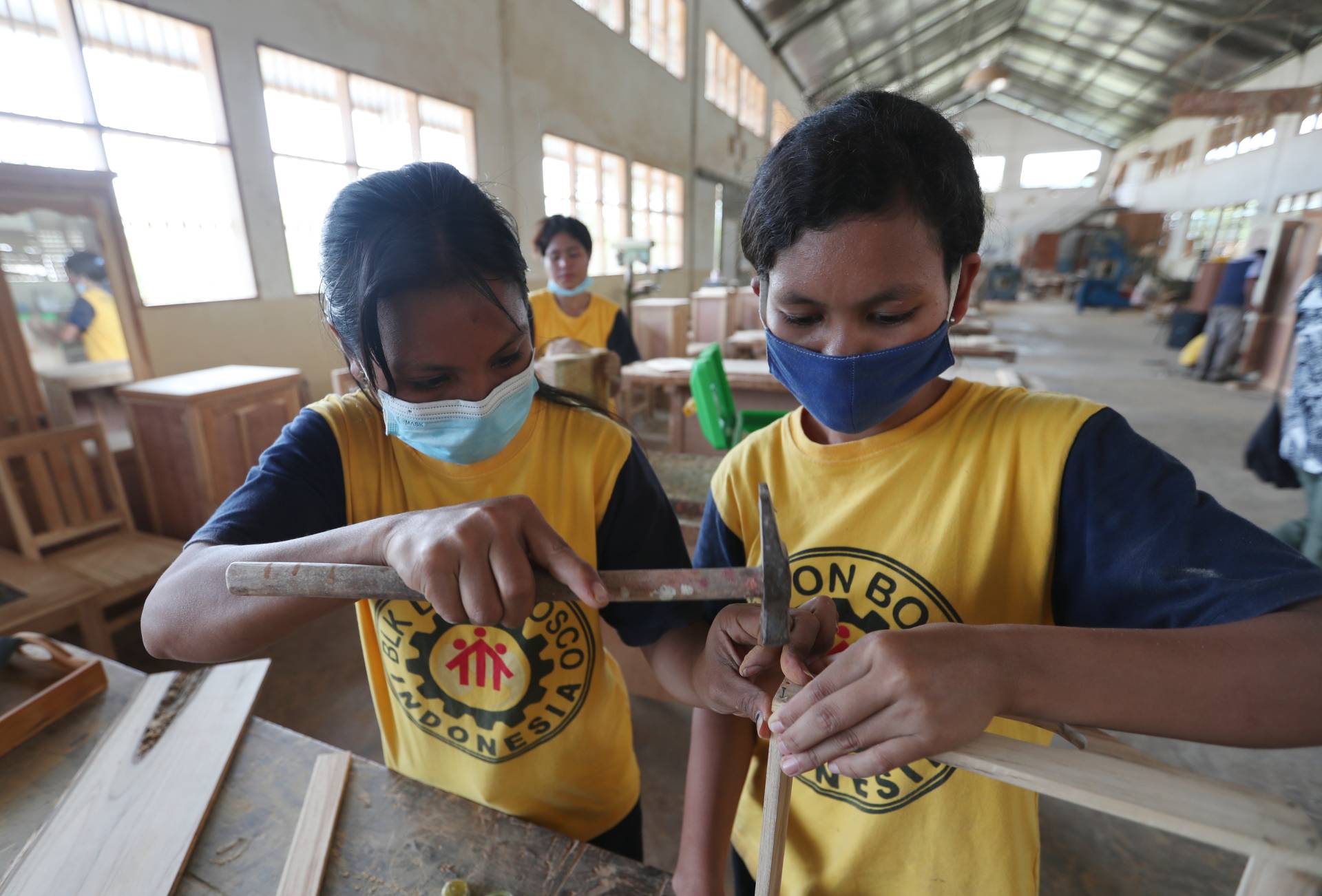Ten young people from Mata Redi and Mata Woga villages in Katiku Tana district, Central Sumba, have high expectations for their future independent working lives. These seven young men and three young women – all junior high or senior high school graduates – were selected to participate in the furniture-making training course at the Don Bosco professional training centre in June–August 2021.
In an interview with the director of Don Bosco training centre, Brother Ephrem Santos, in August 2021, he explained more about the programme, “This activity is being delivered in collaboration with MENTARI, which aligns with our vision and mission to provide human resource empowerment in eastern Indonesia. We hope that after this training [the participants] will be more independent. For example, they could use the knowledge they have gained to apply for jobs in their field – or even open their own business; they can now capture [a market share among] the local workers in their areas.”
He added that the course instructors were highly experienced in their field. Their approach to training was to split the course into 20 percent of theory – providing furniture-making basic skills in the classroom – and 80 percent hands-on practice in Don Bosco’s labs.
Brother Ephrem is originally from the Philippines, but he has been living in Indonesia for more than a decade and understands the challenges that young people face. Thus, he explained that the course aimed not only at equipping participants with skills in making furniture but also to develop useful transferrable skills – including character building, motivation, Bahasa Indonesia, English, and information technology. Staying in the dormitory at the centre creates a sense of discipline and enables them to improve their time management, which will be of great service when they go back home and launch their new careers.

Mata Redi and Mata Woga villages are part of MENTARI’s demonstration project to build and develop community-based solar power plants that communities will ultimately manage themselves. The aim is to provide reliable electrical services to create opportunities and boost local economies. The furniture-making course came under the scholarship scheme for training activities designed to build local capacity and give people a sense of ownership over the solar power plant and the new opportunities it is likely to generate.
MENTARI covered the costs of the course for the participants who attended the training in its entirety. Also, the activity had to respect strict COVID-19 pandemic health protocols. At the end of the training, the successful participants were awarded certificates they can now use to apply for positions in village-owned enterprises or even to develop their businesses using the new energy services available in Mata Redi and Mata Woga.
The furniture sector is already prominent in Mata Redi and Mata Woga, with many villagers working in local furniture businesses. Still, productivity has been affected by the lack of electricity in the two villages. The new solar power plant will help the sector reach its full potential.

Building their businesses and making their parents proud
One participant in the furniture training course was Monika Ardila – better known as Dila – a 19-year-old from Mata Redi. She was thrilled to qualify for the training since she believed her junior high education level might preclude her from accessing the course. However, the Don Bosco centre and her brother persuaded her to apply, and she successfully enrolled in the course.
She shared her thoughts about the opportunity, “I am proud to have been selected together with my friends. I am interested in the world of furniture crafts because I often help in my brother’s furniture business. Although I don’t yet hold advanced skills, I am already proficient in using furniture-making tools!”
Dila was transparent about the difficulties she faced at the onset of the training process. She soon learned that wood for furniture could not be cut arbitrarily. There are myriad measures and techniques to be learned, but once she started practicing them, she gradually became more confident about her skills. She said, “The first piece of furniture we learned to produce was a table. It turns out that I can do it – and my work is good. We will also learn to make chairs and cabinets.”
Dila dreams of opening her own furniture business one day in Mata Redi where she lives with her parents. For her, the toughest challenge she faced in participating in this training was longing to be back with her family, especially her mother. During the course, she could only go home once, and this was because she had news that her mother was sick. She felt so emotional when her mother insisted that she should return immediately to the training centre and focus on the lessons, “My mother said she was proud of me for being selected for this training. That‘s what drives me to practice and learn the lessons quickly and then open a business at home so I can help and make my mother happy.
Another participant in the course was Stefanus Kaledi Togu, a 20-year-old from Mata Redi. He expressed similar feelings about the course and felt grateful that he was chosen to participate out of the many young people in Mata Redi who took part in the qualification process. “I am very happy to be able to attend this training. I’m hoping that after the training, we can open a furniture business in Mata Redi, so I have my income and help my parents with the cost of family living”, he stated.







